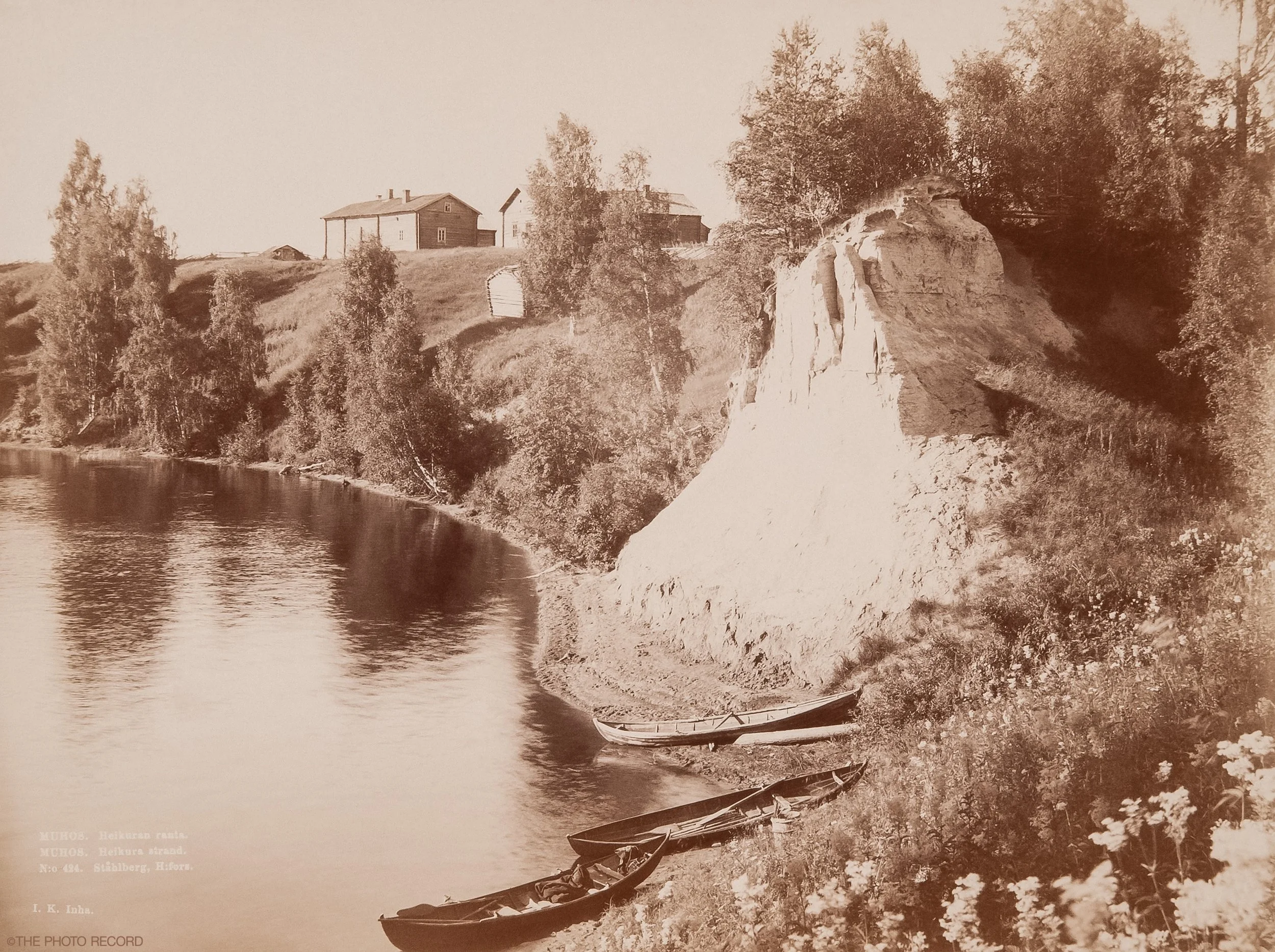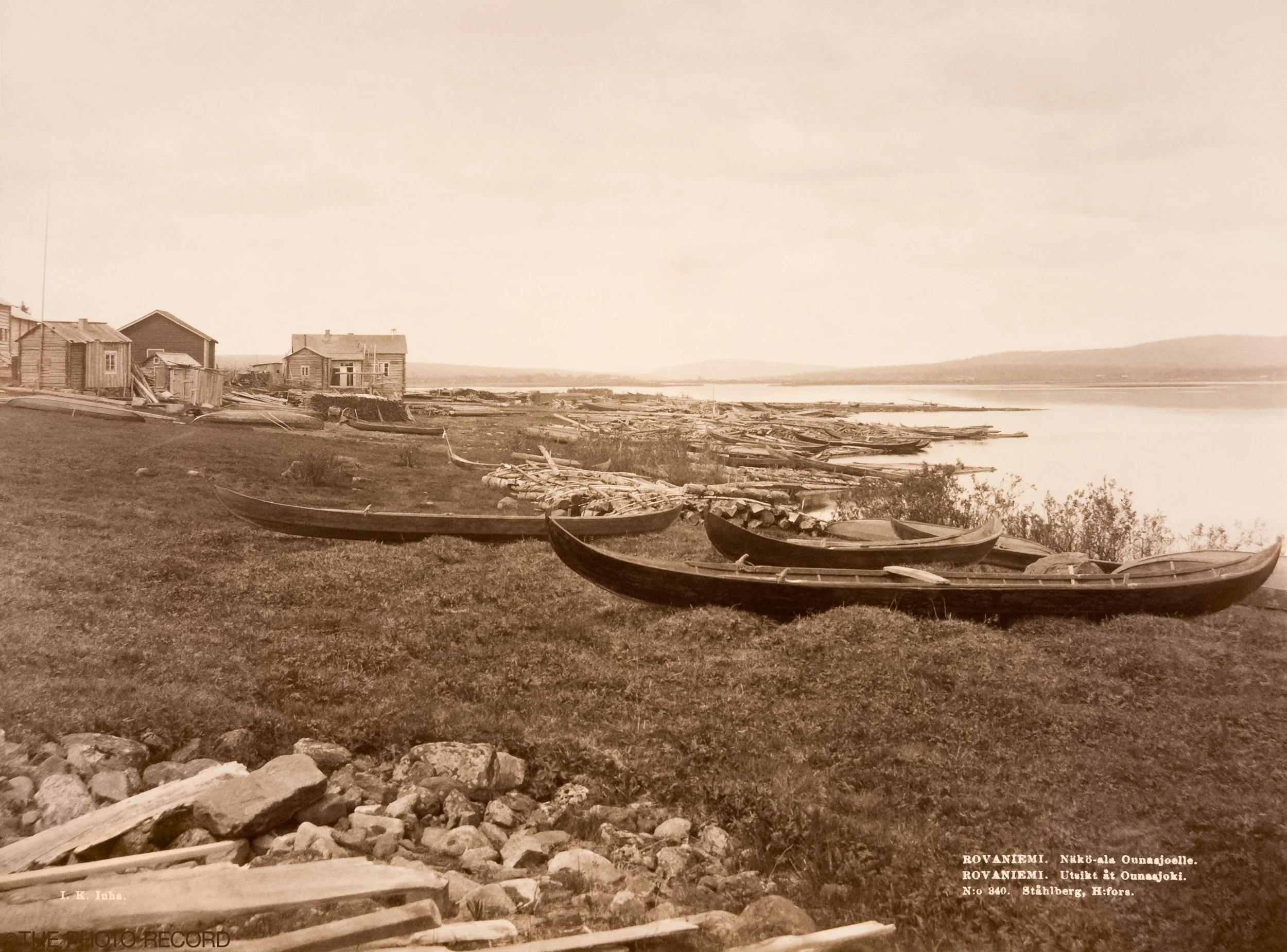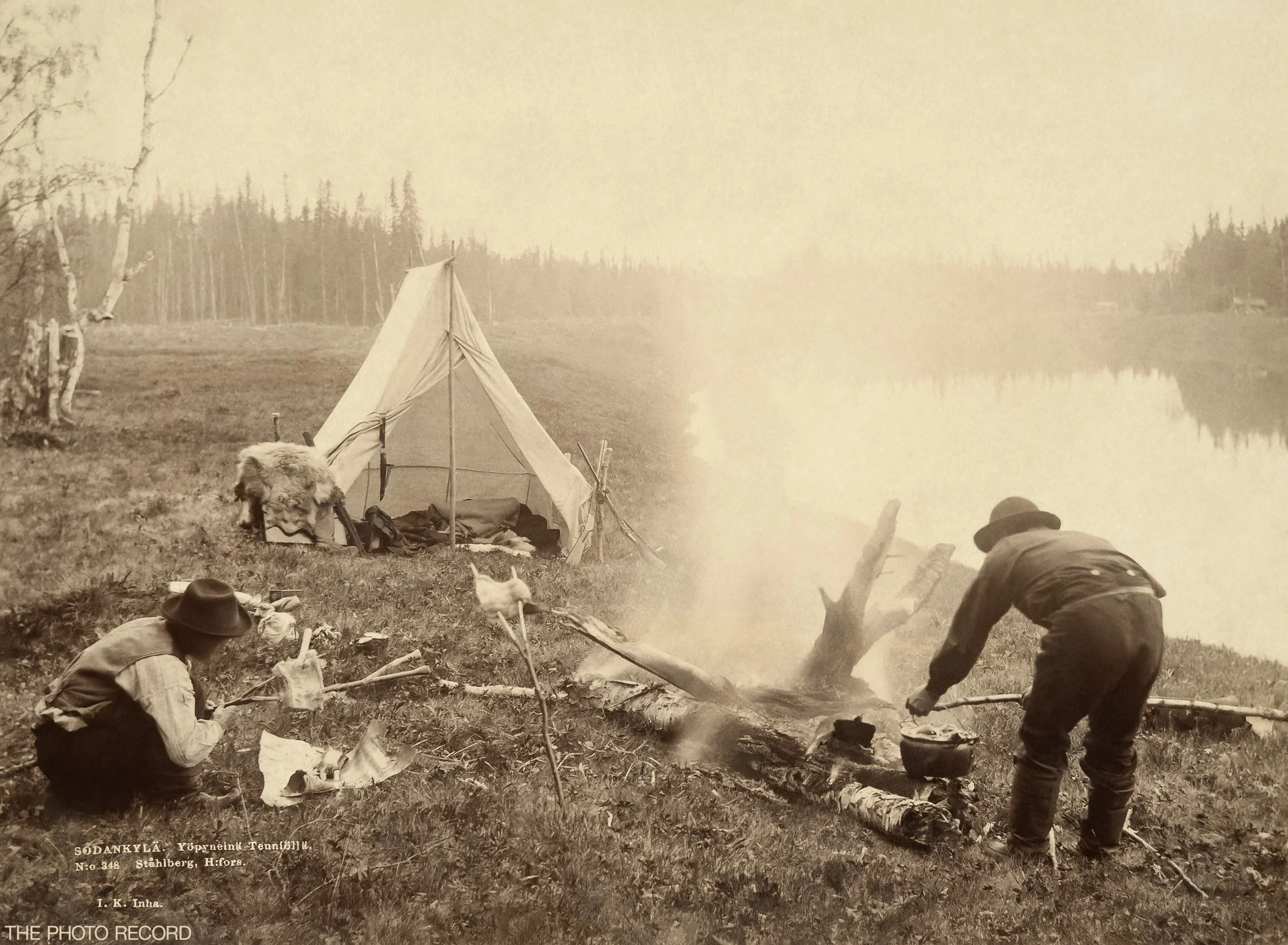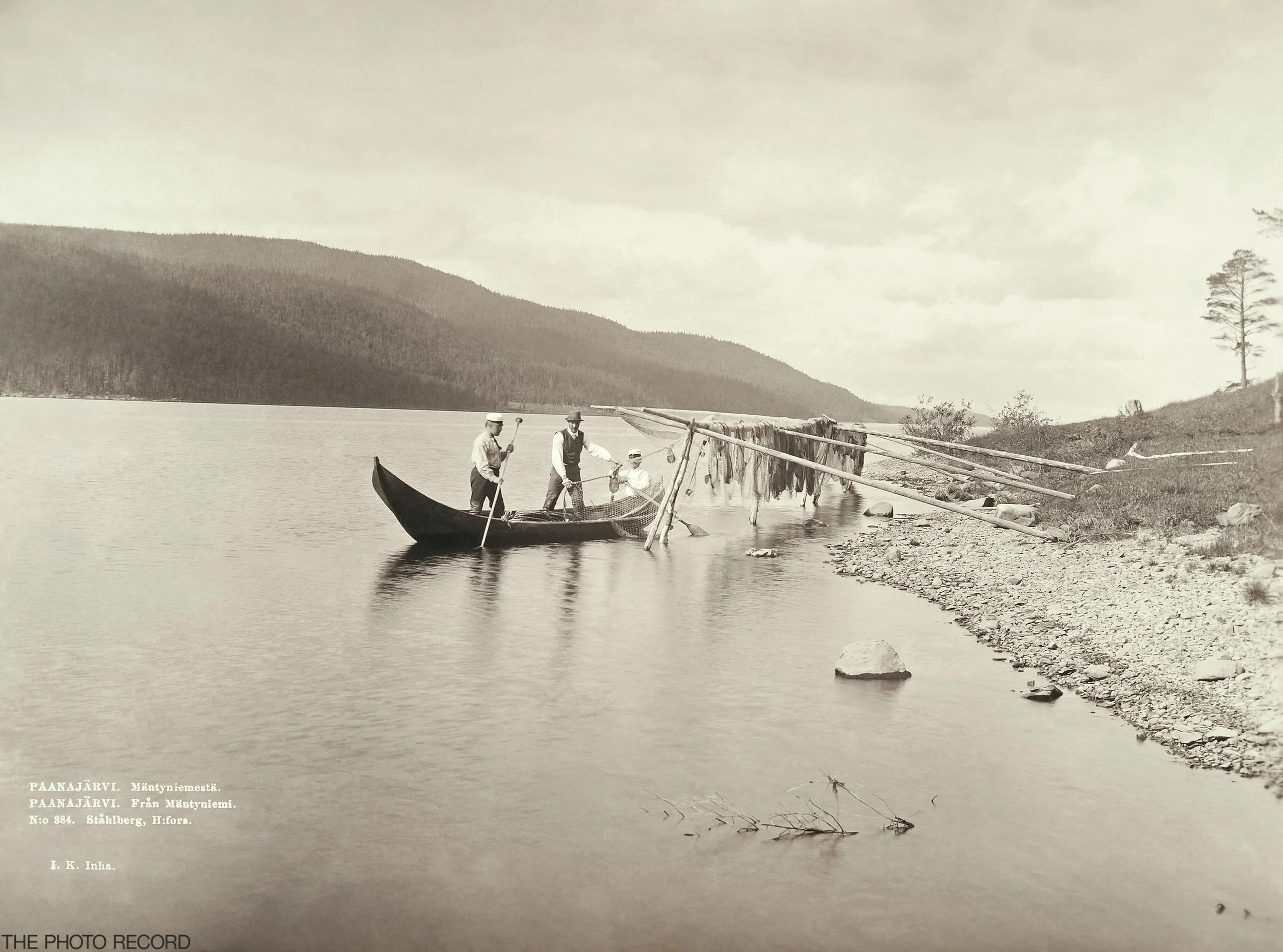Heikura's Beach in Muhos
Muhos, a rural gem in Northern Ostrobothnia, Finland, thrived on agriculture and forestry in the late 1800s. Local farmers grew staple crops like rye, barley, and potatoes, while the surrounding forests provided timber for construction and crafts. The community's connection to the Oulujoki River facilitated transportation and trade, with rowboats playing a crucial role in daily life. The construction of the Oulu–Kontiomäki railway line in this period marked the beginning of modernization, linking Muhos to broader markets and fostering growth.
Social life in Muhos centered around the church and communal activities. The Muhos Church, built in 1634, was the spiritual heart of the community, hosting significant events and gatherings. Education was evolving, with local schools providing basic instruction in a one-room setting.
Photo :A serene scene of three rowboats pulled up on the bank of a wide river. Steep cliffs rise from the shore, leading to Heikura’s farm and its outbuildings perched atop the heights.
Original Photograph
Click image to enlarge
Digitally Restored Photograph
Click image to enlarge
Photo Information
Original photo courtesy of the Finnish Heritage Agency
Photographer: I.K. Inha, Prduced by K.E Ståhlberg
Year: 1890s
Link to original photo here
Copyright 2024 The Photo Record. All rights reserved. All digitally restored photographs and contents of this article may not be reproduced or used in any manner whatsoever without the express written permission of the owner.




